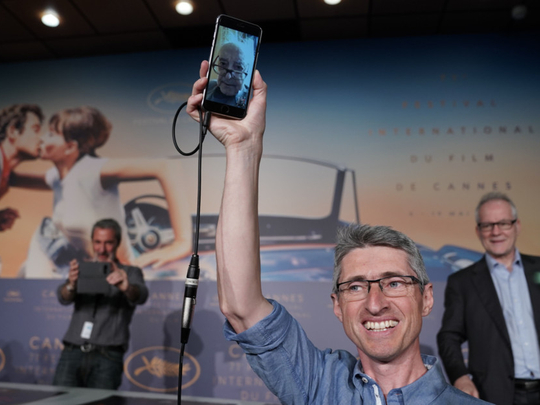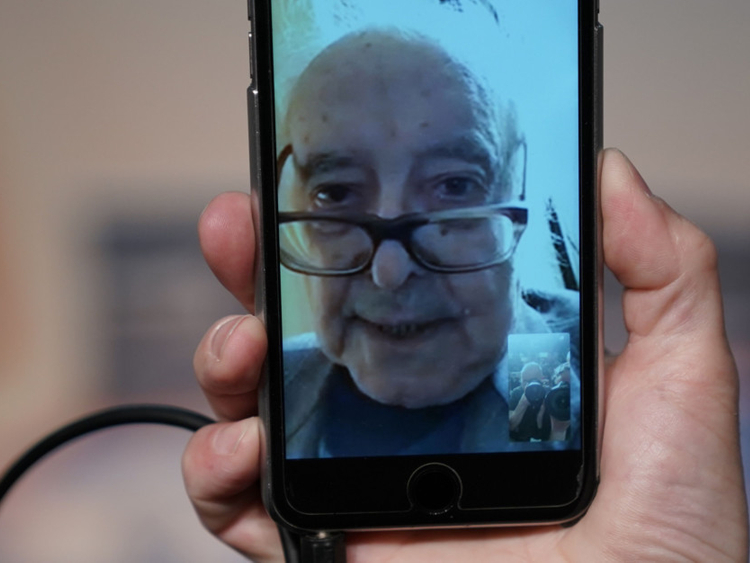
In one of the oddest but most fitting of press conferences, reclusive and iconoclastic director Jean-Luc Godard spoke to reporters on Saturday at the Cannes Film Festival via FaceTime, answering questions over a mobile phone screen.
The unusual sight and rare audience with the 87-year-old French filmmaking legend was marvelled at by festivalgoers who pronounced the press conference perfectly Godardian. The director who pioneered film’s New Wave movement during the 1960s was connected by phone by French critic Gerard Lefort, who held the screen aloft for reporters to approach, one by one.
Journalists lined up for their chance to ask one of cinema’s most enigmatic figures questions about his new film, the state of cinema and even Michael Bay, whose 13 Hours: The Secret Soldiers of Benghazi is seen fleetingly in Godard’s The Image Book.
Composed largely of clips from films, documentaries and news footage, The Image Book is the latest film essay from the ever-experimental Godard. Playing in competition at Cannes, the film finds him, in voice-over commentary, contemplating the West’s relationship to the Arab world.
“I wanted to show how the Arabs don’t really need other people. They can fare well all by themselves. They invented writing. They invented many things,” Godard said. “I think they should be left alone to deal with their own affairs.”
Godard’s remote presence at this year’s Cannes is also timely. The festival is the 50th anniversary of the infamous 1968 Cannes Film Festival, which Godard and Francois Truffaut played prominent roles in shutting down halfway through in solidarity with student and worker protests that were sweeping France.
“I have many, many memories of May 1968 and people who are now departed,” Godard said when asked about the anniversary.
As he has in previous films like Film Socialism (2010) and Goodbye to Language (2014), Godard spoke frequently during his FaceTime appearance about the degradation of visual language today.
“I think many parties contribute to totalitarianism in terms of the images films filmed, as opposed to images that are actually thought in one’s mind,” he said.
“I believe that the cinema, as I conceive it, is a tiny Catalonia, which finds it difficult to exist,” Godard said, alluding to the region in Spain engaged in a bitter struggle for independence.
Later he elaborated: “The cinema should consist not so much as showing what’s happening. That you can see around you every day. Films should show what’s not happening, which you never see anywhere, including on Facebook.”
His face filling the cellphone screen, the raspy-voiced Godard responded warmly to each journalist as the reporters milled around Lefort. The director’s answers often followed unpredictable, ruminative directions, mixing politics with art.
“Democracy is shrinking in Europe. Children are less pro-European,” said Godard. “The Africans are making more children, whereas in Europe there are fewer and fewer children. It strikes me that perhaps there’s more love in Africa than in Europe now.”
Asked if he planned to continue making films, Godard replied, “Of course, yes, absolutely.”
“If I can,” he said. “It doesn’t really depend on me. It depends on my legs. It depends a lot on my hands and it depends a little bit on my eyes.”
After close to an hour, Lefort said it was time to wrap up. The already standing reporters heartily applauded Godard, while the director smiled on the screen just before the call cut out.














